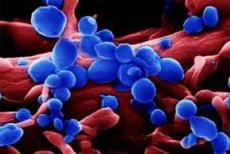WHO will publish information on laboratory tests related to the avian influenza virus
Last reviewed: 16.10.2021

All iLive content is medically reviewed or fact checked to ensure as much factual accuracy as possible.
We have strict sourcing guidelines and only link to reputable media sites, academic research institutions and, whenever possible, medically peer reviewed studies. Note that the numbers in parentheses ([1], [2], etc.) are clickable links to these studies.
If you feel that any of our content is inaccurate, out-of-date, or otherwise questionable, please select it and press Ctrl + Enter.

The first working meeting devoted to the discussion of the risks and benefits of laboratory research related to the avian influenza virus, as well as the possibility of public publication of the details of the experiments, will be held in Geneva on February 16-17, the World Health Organization informs.
The WHO report noted that this preliminary consultation will involve researchers involved in experiments with the H5N1 virus, as well as people who are familiar with their results. The results were obtained last year, but were not published, as the American Biosafety Council censored the scientific articles submitted to the publication by the authors of the research.
In order to hold an international forum on, inter alia, the publication of the results of studies of viruses obtained experimentally, scientists recently applied to WHO, under whose guidance mutant strains of the avian influenza virus were created in two laboratories in the Netherlands and in the United States.
At the same time as the WHO, Ron Fouchier from the Erasmus Medical Center in Rotterdam and Yoshihiro Kawaoka from the US University of Wisconsin-Madison, who created the highly infectious strain on the basis of the H5N1 virus, reported a 60-day suspension studies, the results of which are currently not available to the professional community.
Their letter was published in January of this year in the journals Science and Nature. The reason was the call of the American Biosafety Council to accept scientists voluntary moratorium on the publication of details of studies that are devoted to highly pathogenic strains of influenza viruses. Fears of the Council's experts are connected with the fact that scientific information can become the property of terrorists.
As the WHO notes, the range of issues scheduled for discussion at the February meeting is limited, and the date of the next consultation has not yet been determined.
